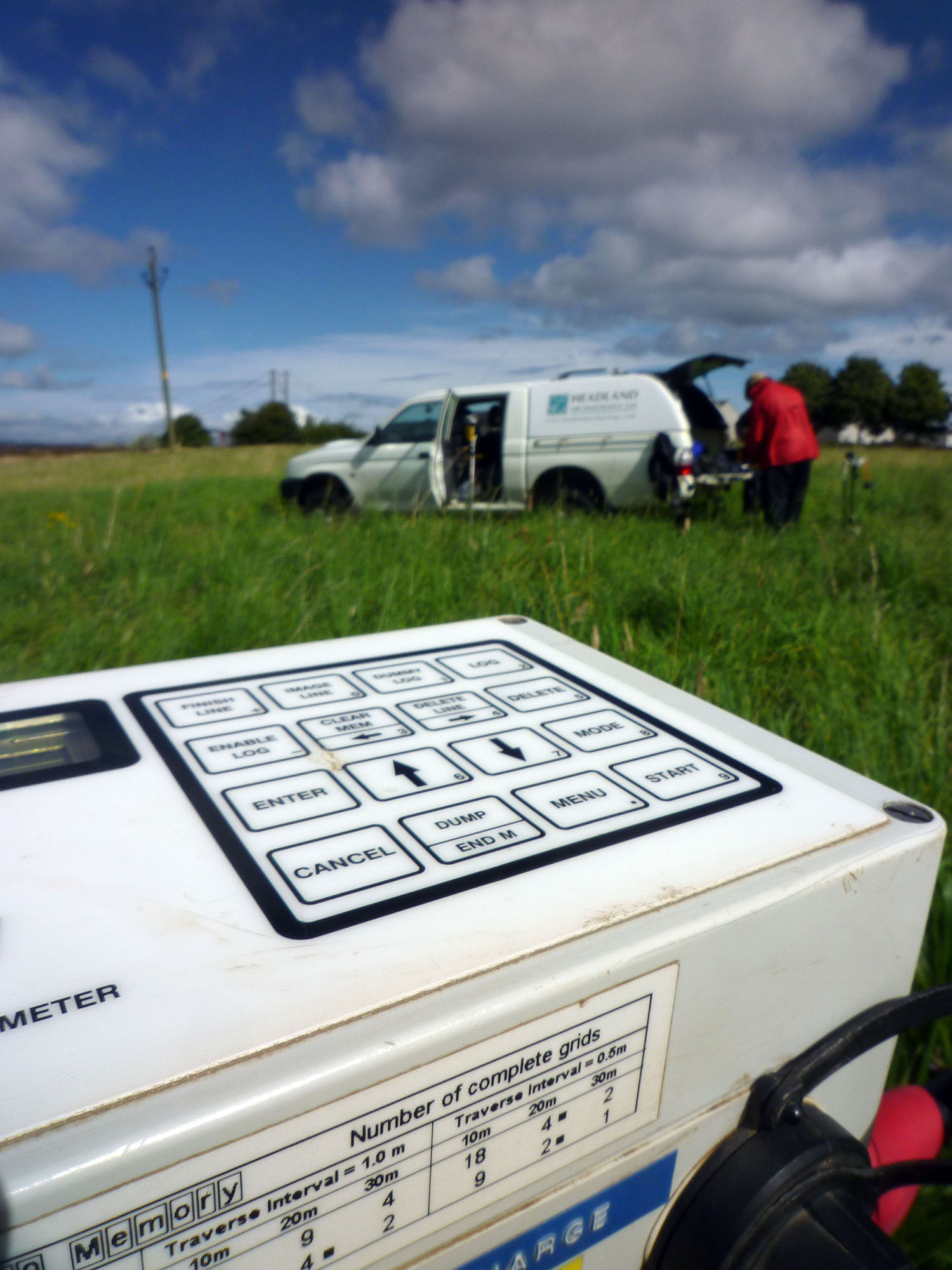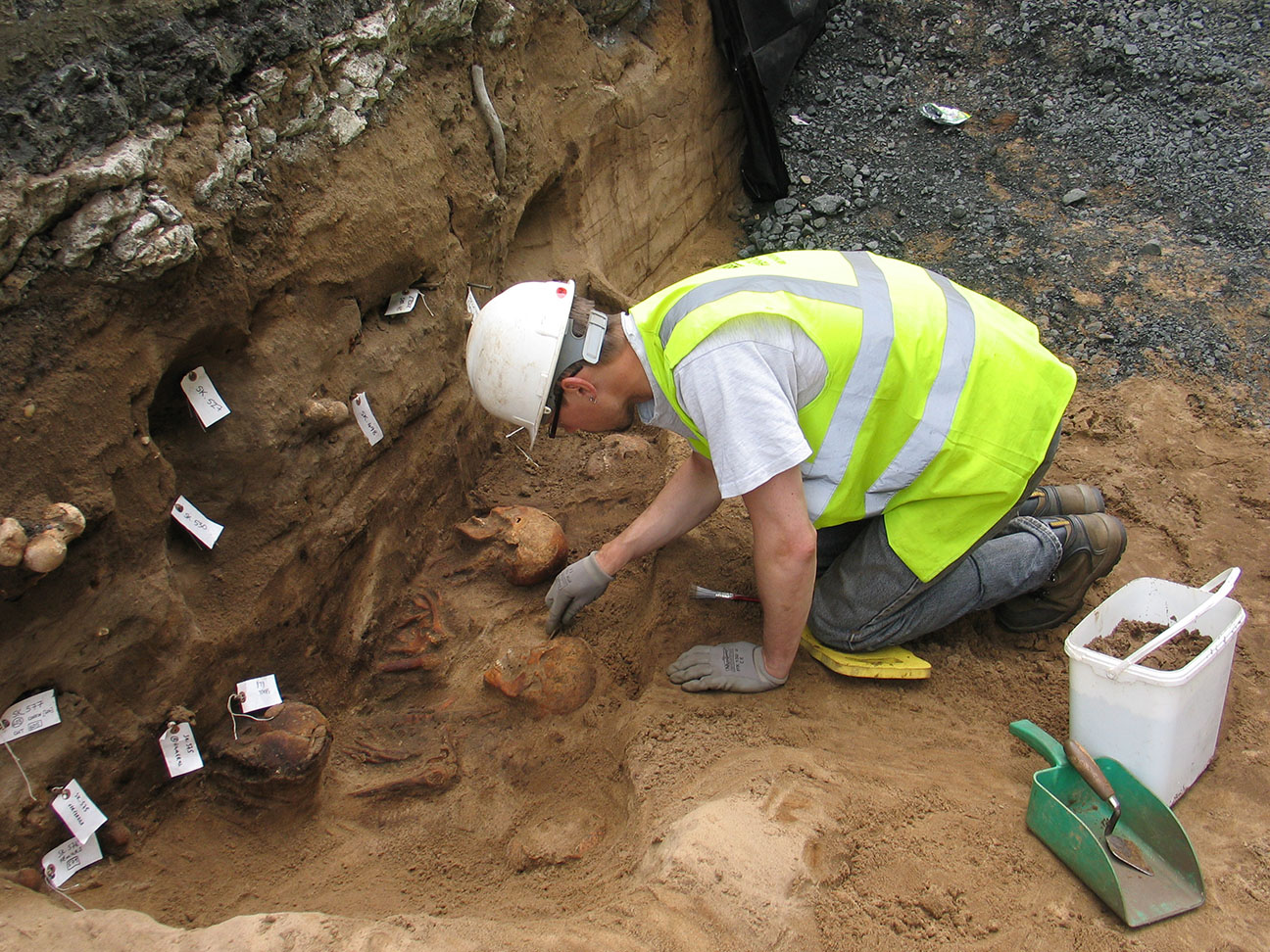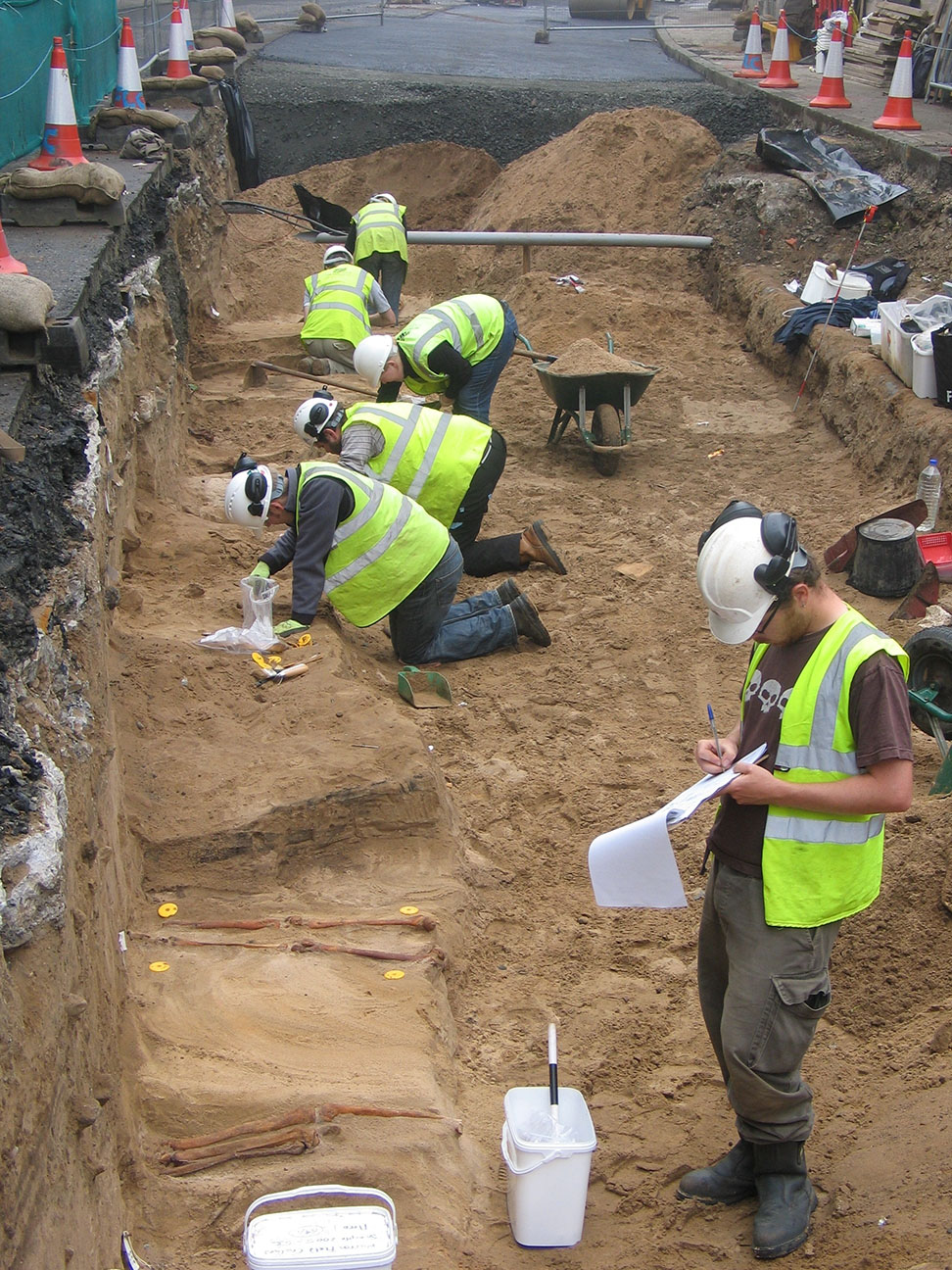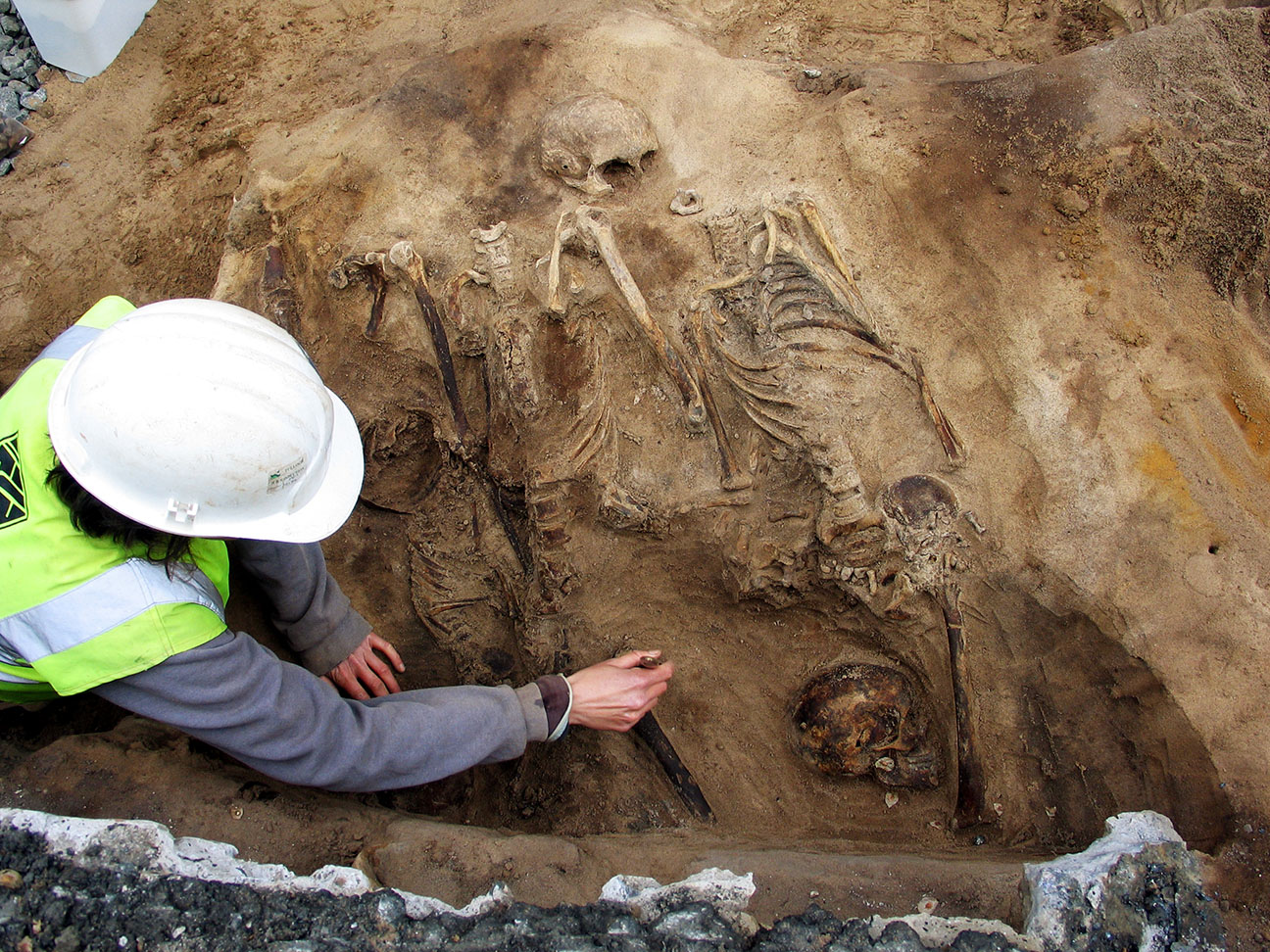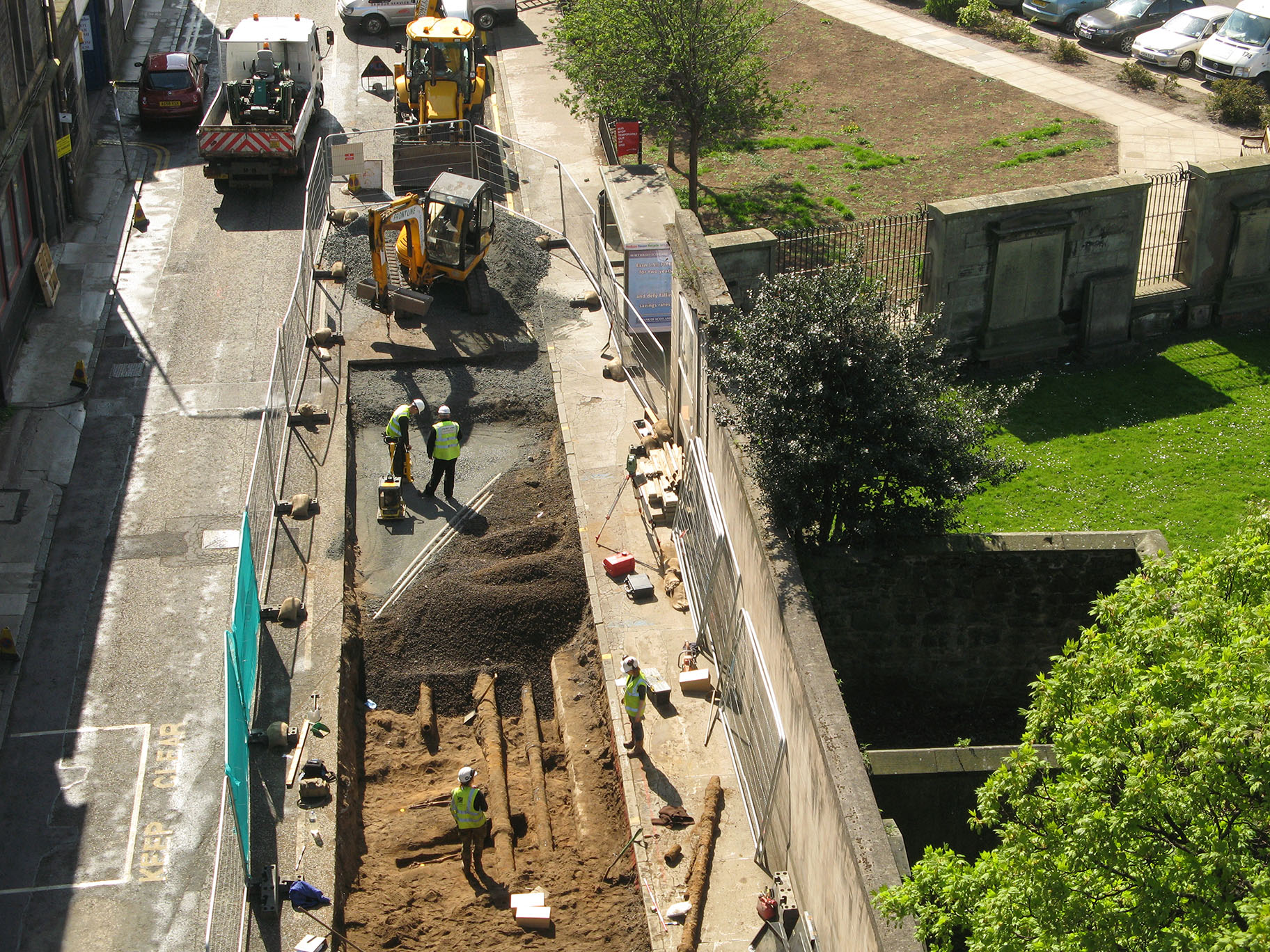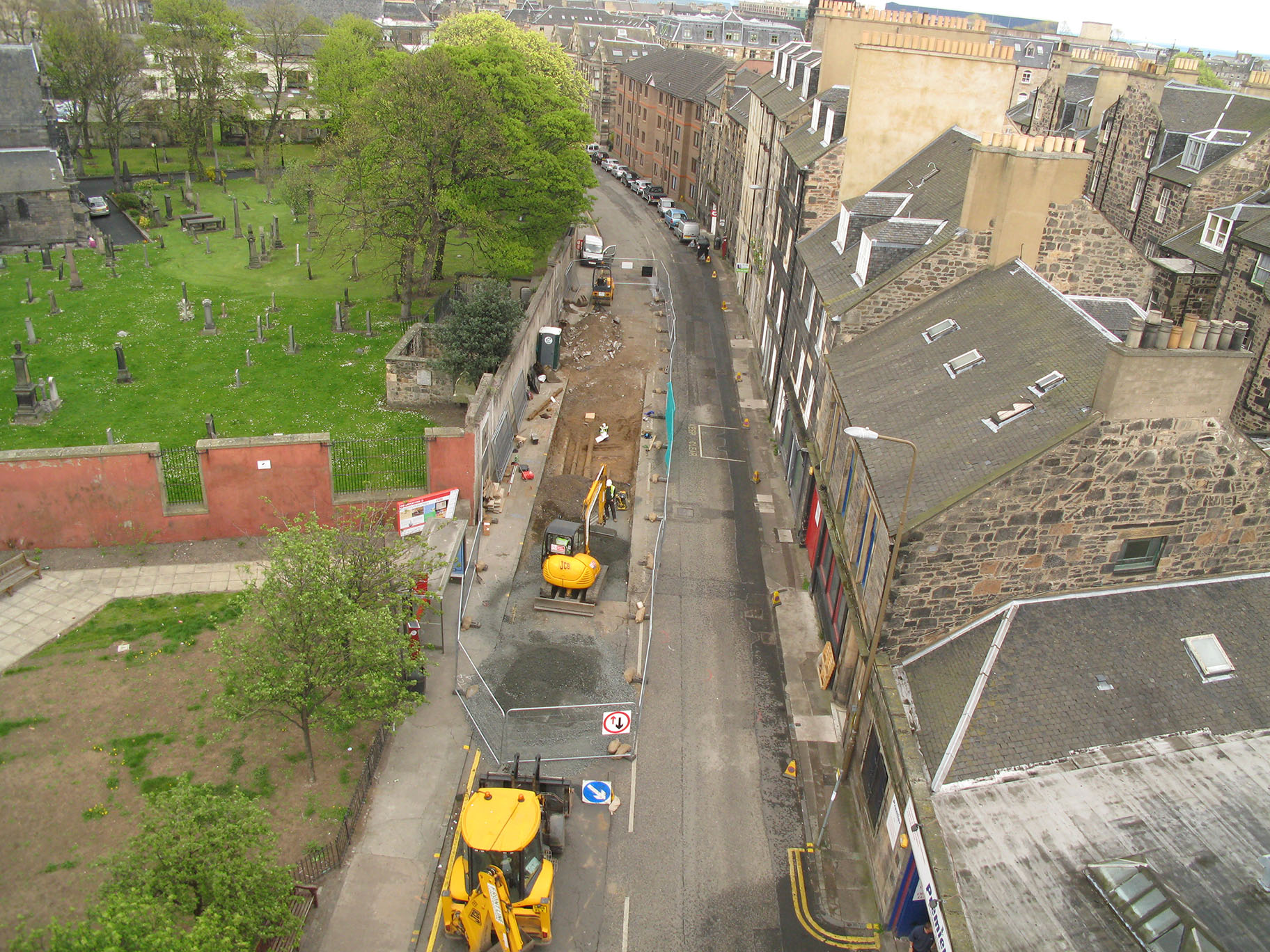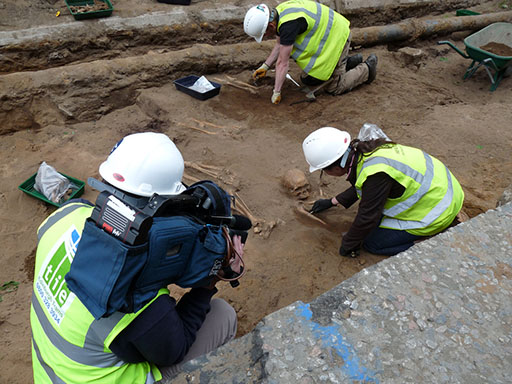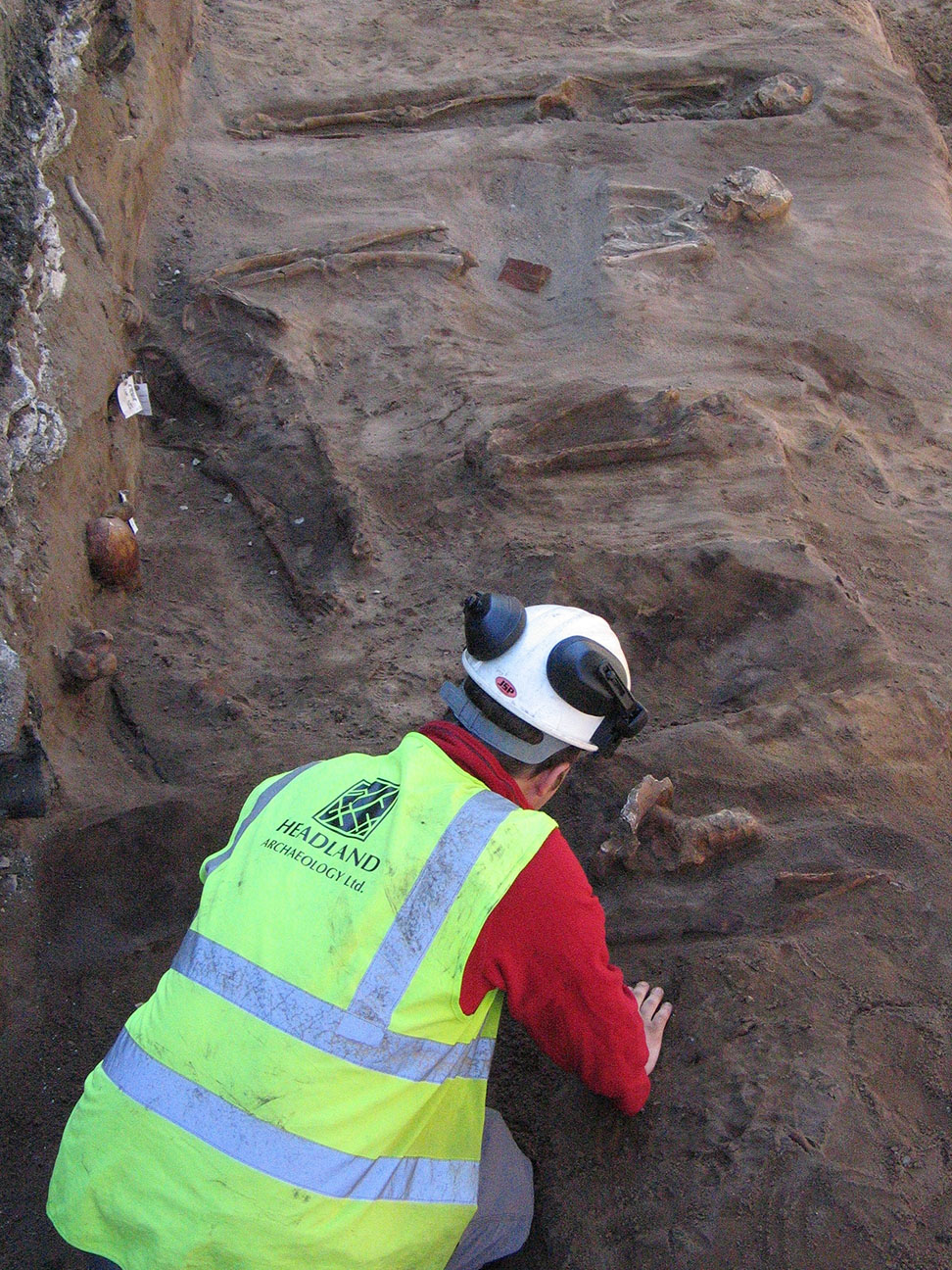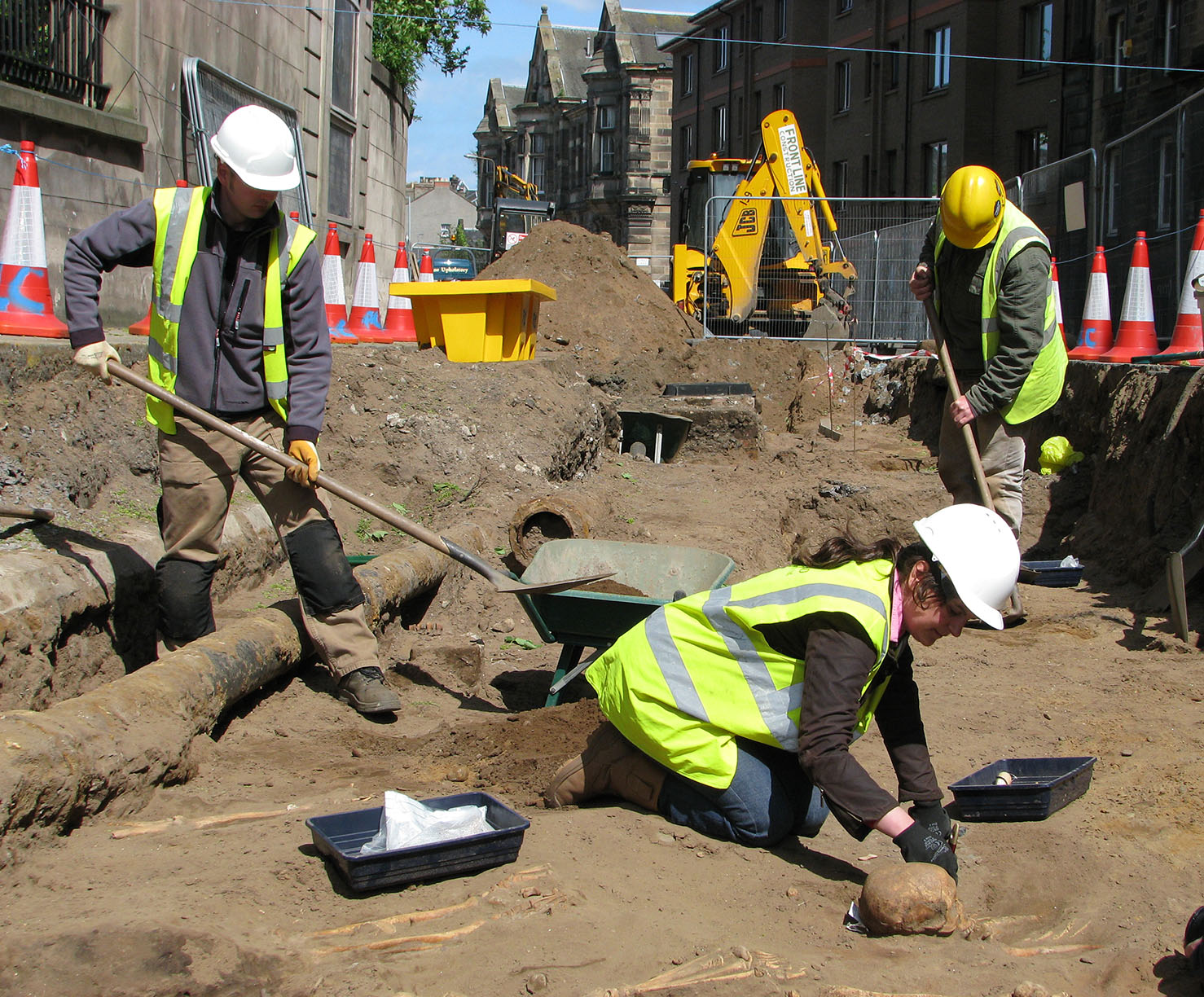Details
Client:
Carillion & Transport Initiatives Edinburgh
Contract Value:
£400k to date
Sector:
Infrastructure (Rails & Utilities)
Service(s)
Excavation, Monitoring, Osteoarchaeology
Project Highlights
- 15 km of utilities trenches monitored
- 305 skeletons excavated
- Important information relating to medieval Leith and the 16th century Siege of Leith was recovered.
- Positive publicity during controversial project; archaeology can often be used to create positive publicity within local communities
- A fascinating project of facial reconstructions on some of the human remains was undertaken by CECAS in collaboration with Dundee University.
Tags
EDINBURGH TRAMS
The Edinburgh Trams project was one of Headland’s high profile and high pressure environment, and the archaeological programme both vital and challenging. The project was subject to intense public scrutiny and it was important that our client, Transport Initiatives Edinburgh, got value for money from our input.
Pre-start discussions enabled three levels of archaeological response to be defined, dependent on the level of archaeological risk present. This ranged from the presence of a single archaeologist per area, monitoring ground breaking works, up to full scale excavation within a targeted area and each level was tagged within a simple green, amber or red traffic light system. We allowed the client to plan for periods of intense archaeological work by having the right level of response in place ahead of time, ensuring minimum delays to the overall programme. Throughout the utilities diversion phase, close coordination was required with Carillion and their frontline managers.
The work recovered important information relating to medieval Leith and the sixteen-century Siege of Leith. One of the larger set piece excavations was as a result of discoveries made during the utilities diversion. Human remains were found in a cable trench under a pavement immediately outside an existing churchyard – the original burial ground had once extended further. As the majority of it lay beneath the current road, a main traffic route through the city, excavation of any further skeletons needed careful management to avoid disturbance to the public. Instead of closing the road, one lane of the road was always kept open, as 10m sections of the other side of the road were cleared of archaeology. The team uncovered over 300 individuals dating between the 14th and 18th centuries.
Subsequently, Headland undertook the specialist analysis of the skeletons found during the project, fulfilling part of the planning requirements for the client. Our in-house specialists were able to record the details of each individual, such as height, sex and any medical conditions which leave marks on the bones. This information helped place these discoveries in context and allowed a fuller understanding of what the remains mean. The findings are currently being prepared for publication.
